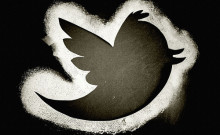
© 2011 Fernando de Sousa, Flickr | CC-BY-SA | via Wylio
Recently, a Twitter pal of mine noticed that the characters of AMC’s hit show Mad Men were Twittering. I had recently discovered the show and was just getting acquainted with the characters on DVD and was thrilled when @Don_Draper followed me. In a very organic way, many of the other characters soon followed. A few mysterious @ replies from them was, I thought, an inspired way to build a fan base. In fact, merely days before I had twittered about how I’d just discovered the show and was looking forward to getting caught up.
I thought what we had here was a great case of social media brand marketing. To me, all the pieces seemed to be in place. It looked like AMC had been monitoring the Twitterverse for fan mentions of the show to learn who to follow, a best-practice for brands wanting to enter the Twitter realm. They seamlessly integrated their brand with simple character and brand-building dialog. It was simple but brilliant, or so I thought.
And then, suddenly, the party stopped.
Yesterday, Venture Beat reported that the characters had been sent orders to cease their Twittering under the character names. It wasn’t clear if this was an issue of violating Twitter policies, but it quickly surfaced that it was a DMCA action
What Happened to Viral Marketing?
Soon after, the person otherwise known as @Paul_Kinsey blogged about effort. He says that as a fan of the show, when he noticed that some of the characters from Mad Men were tweeting, he quickly jumped on board as his favorite character. The interesting thing, though, is that he says he e-mailed AMC to let them know what he was doing. Further, he says he told them he would gladly stop if they just let him know. Instead, things escalated into legal action.
All of which brings me to the question: why all the ruckus, AMC? Some sites report that fan backlash against the network is likely – even if it just boils down to a grand disappointment. I contend that if so many people were so quickly following your characters online, so many people were enjoying the outcome, why not just take up the charge yourselves, sanction the efforts, and be excited about people who are so passionate about your brand that they’re essentially working for you, for free? What ever happened to the term brand evangelist, after all?
Couldn’t this have been a textbook example of viral marketing gone right? (Update: Maybe it is, after all.)
Is it Brand Identity Theft?
Thinking deeper about the issue, I can see where AMC might have been coming from. It’s frightening to think you may be losing control of a brand – be it the network brand, the show’s brand, or even the personal brands of the characters themselves.
Yep, that’s right. I’m talking about personal branding for fictional characters. Think about it for a second, and you’ll realize it’s a very real thing.
In that line of thinking, could you argue that these unsanctioned Twitter efforts amounted to brand identity theft? It’s not exactly a Fake Steve Jobs scenario, but it’s an interesting question.
Do the Same Rule Apply?
But at the end of the day, these are, after all, fictional characters or a hit TV show. They are not, actually, real people with real lives and identities at stake.
Right? Is it as clear as that, or are the lines blurred when it comes to extensions of a business’s brand?
What We can Learn
I’m still not sure exactly where I fall on this at the end of the day. But, the whole scenario does bring up some interesting points about managing brands online – whether business brands or personal brands.
1) Going online for brand management isn’t a choice anymore. If you’re a brand, no one is asking your permission to interact with your brand online. People are talking about you online. Now. Today. Interacting with your brand. Some will be happy, passionate fans. Others will be angry, negative detractors. You don’t have a choice anymore. That’s the power of the web. Everyone has a voice. You can either join the conversation and interact with your customers, which means giving up absolute control over your brand messaging, or try to silence the conversation. Which is probably not a great idea. (Because it doesn’t really work, and worse, it can backfire
2) Web users are writing new rules. Learn and apply. This whole case illustrates the powerful (both in the good and bad senses of the word) possibilities of the web in terms of brand proliferation. Your brand is way beyond water cooler talk in this world. Fans are empowered by technology, and your brand can benefit from broad-reaching exposure. But branding online is about more than face time. It’s about interaction. It’s about flexibility. It’s about showing your true colors. And though Mad Men has a Facebook account and a blog, this case shows us that the rules of participation are always evolving. Brands have to figure out how to adapt their branding as the rules evolve and still keep the passion of fans intact.
3) There’s a new metaphor in town. Don’t “manage,” engage. To be successful at branding online, the “management” concept sort of slips away. Instead, a new metaphor emerges. Brand engagement becomes key. This requires a new set of rules, rules which brands don’t always control, like norms and etiquettes. It means listening more and interacting more. And it requires engaging in the process of defining for your brand the fine line between letting fans passionately promote your it and letting them overtake it.
What’s Next?
This isn’t the first or last case we’ll see of businesses trying to define their new norms and responses to social media. More and more companies are hopping on sites like Twitter, Facebook, and beyond. Some of them have great strategies. Others don’t. Some simply don’t know how to engage with passionate users and opt to try and apply the old rules instead.
We Have the Power to Help Define
The great thing is that in this world, you can be a part of helping define the new norms. How do you want brands to interact with you? What examples of great social media marketing have you witnessed? Who’s doing things right? Who’s doing them wrong?
Update: The Silicon Alley Insider reports that AMC has wised up and let the Tweeting continue. So the same questions apply, but now maybe we’re looking at a great case of companies that do get it and are listening. Love to hear your thoughts. This will be an interesting one to keep tabs on, but it’s encouraging to see this process move so quickly.
Want to read more posts like these? Sign up for RSS updates from Personal PR.


Great post. Will also add that it also raises the question as to what is the difference between reality and creating characters when you get online?
What if you put the entire script in the Twitter timeline as the show was being broadcast? What if what we put in the Twitter timeline is a script we’re writing; sometimes consciously, sometimes subconsciously. This is the angle I took on a little using The Graduate here:
http://www.newmediabuzz.com/the_new_media_buzz_brough/2008/07/microblogging-i.html
@ Michael – Thanks for the link. I really enjoyed that post. Lots of great ideas there.
I agree that it’s a fascinating idea to think about the difference between reality and characters online, especially considering how many people on the web are here under a user name or identity rather than their actual full given name.
How many “real” people are conveying themselves under a brand, name, or identity that’s not really theirs, something they made up? I’d venture to say probably more than those who are doing authentic personal branding online.
Another interesting thing that this brings up is from the corporate/business perspective: is a character, logo, or brand name effective as an avatar in social media, or is it more powerful to have real people under real names talking about your brand? I see trends both ways, good and bad. Thoughts?
Very thought provoking. To your point about whether it’s more powerful to have real people under real names talking about your brand, I think the whole concept of “microcelebrity” is forcing us to rethink the way we brand ourselves online. Whether we write a blog about how much we like pickles, or we host a website dedicated to the search for bigfoot, people are influenced by what they read on the blogoshere.
@ Shawn – Interesting point about microcelebrity coming into the mix. I can think of several good examples of strong personal brands that have transversed company brands. The microcelebrity personal brands may be another question, however. It’s sort of a chicken-egg thing, maybe.
@Basket – Great blog – readers who are fans of Mad Men should check it out.
being online is like living in other world with your own heroes and friends. IT is like a fairy which stopps any time you shut down your computer
I am reading this article the 2nd time and can’t stop admiring your perfect skill of writting and discussing actual issues
Love this concept …
“Don’t “manage,” engage.”
Tiffany … how do you start companies off when it comes to learning how to ‘engage’ in the social media world?
—
http://twitter.com/franswaa
@ Kate – Thanks! What a wonderful compliment.
@ Frank – Engaging in a social media world is complicated when it comes to the corporate world, so heavy on message regulation, corporate involvement, strategic measures. It can be a huge ideological shift for established and mid to large-sized companies, because so much of engaging in social media revolves around transparent, authentic, people-centric messaging.
So, to start off, I say the emphasis has to be on individuals building relationships. Getting that mindshift is huge, and great efforts are built off of it.
Thanks for the response !!!
http://twitter.com/franswaa
@ Frank – Definitely!
It is very important to see the difference between reality and an online world with its vast variety of opportunity. Just think how many advantages this cyber space gives almost to everyone who uses it